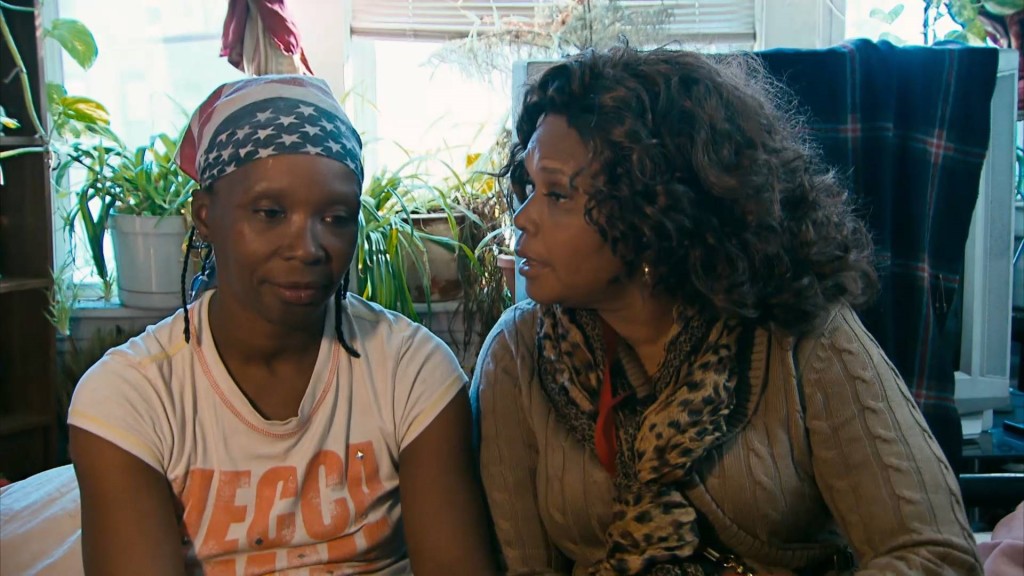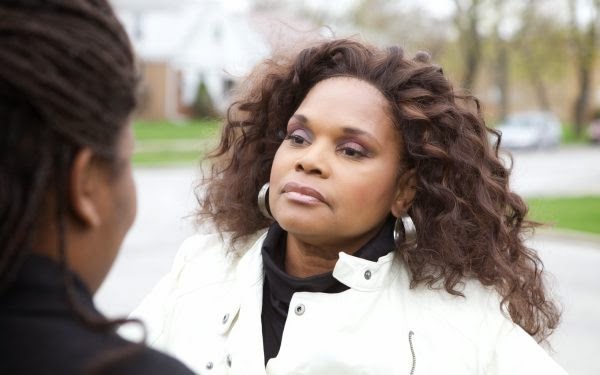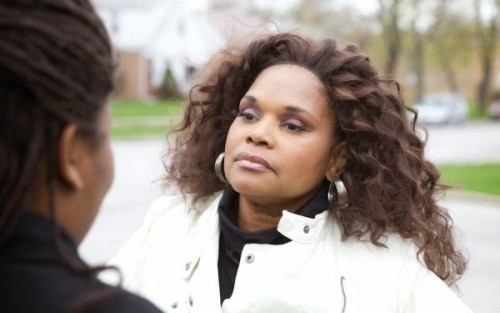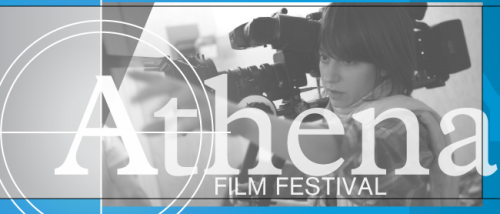Written by Ren Jender.
“I used to be right out here too,” says Brenda Myers-Powell, the focus of the new documentary, Dreamcatcher (directed by Kim Loginotto, who won an award at the most recent Sundance for the film) as she and her coworker wind their vehicle through parts of their native Chicago that no tourist guide includes.
Over 20 years ago I was doing similar work to Myers-Powell’s, distributing condoms and talking with sex workers who worked the streets in my city. The emphasis at that job was safer sex education and HIV testing, but sometimes our clients needed more. One woman asked for and received a ride to detox (though we found out she left the next morning) and after we handed a scared-looking, visibly pregnant woman our condoms and information the driver did a U-turn and put a card for a treatment center (where our outreach van had its office) into her hand. Months afterward we saw that she had become one of the clients there.
When I hear debates about sex work and human trafficking these days I think of that woman and realize neither side would have done her much good. Some “empowered” sex workers would have thought her exploitation and drug addiction–along with the homelessness and violence she might have faced after leaving sex work, weren’t any of their concern. And worldwide efforts to stop “human trafficking” often assume no woman would willingly choose to do sex work; though people have no trouble understanding the difference in other kinds of human trafficking–a woman who works for wages as a maid and is free to quit is different from a maid who never receives her pay and is beaten if she tries to leave. They also ignore the danger law enforcement poses to sex workers themselves. Raids and arrests are, unsurprisingly, not very effective forms of outreach.
Because Myers-Powell spent 25 years as a “prostitute” (she does not use the term “sex worker” or “sex work,” perhaps because the women we see don’t use these terms either) on the same streets where she now does outreach, she understands the complexity of these women’s lives. She tells one young woman (one of the few white women she encounters) on a deserted-looking stretch of road, “This is one of the most dangerous spots,” and that even though she liked to think of herself as tough back in the day she never would have been there at night.
“That’s why I hardly ever come out here,” says the young woman, not entirely convincingly.
Myers-Powell asks her to have coffee, and we see the two, throughout the film, develop a relationship. When I saw Dreamcatcher at the opening night of the recent Athena Film Festival, Myers-Powell told the audience after the screening, “The first time I ask them: what do they want? And probably nobody has ever asked them that before.”
We see the cycle of sexual exploitation of some of these women starts in childhood. In a school-based “at-risk” group of girls that Myers-Powell facilitates, every girl in the room includes rape at an early age, often by someone in her own household, as part of her history, just as Myers-Powell does. When we see her speaking to another group she says, “I’m here to tell each and every one of you today,” and here her face softens, “it is not your fault.”
Myers-Powell has also worked to clear her own criminal record, as well as that of other women, successfully arguing that trafficking shouldn’t result in its survivors being charged with breaking the law. When she announces to the group that she no longer has a record she does a little dance in celebration.
Dreamcatcher is the foundation Myers-Powell’s co-founded; she told the audience at Athena that she started it in 2000, with no money, doing the outreach with her friend in a Ford Focus. Myers-Powell is glamorous (at one point she shows off her impressive wig collection), perceptive, and witty (at Athena she mentioned being directed to “‘social services,’ who are never very social”), but most striking is her unfailing kindness to the women and girls she encounters in the film, including parents we in the audience might judge more harshly. Even when she finds out one girl is making the mistake she herself has made, becoming pregnant at a very young age, Myers-Powell, without a wig or makeup, talking on the phone from her bedroom, is more resigned and sad than angry, but still not defeated.

When I worked in human services, many of the people who worked alongside me were, after their own troubled histories, trying to “give back,” but most of them couldn’t hide their frustration and disappointment with clients, like a mother who is hardest on the child who reminds her of herself at that age. Myers-Powell seems to bring none of this baggage to her work . When she speaks to an obviously impaired in-law (whose young son she is raising) and tells her how much she enjoys talking together when the woman is not high, she doesn’t have any edge in her voice. She means it.
In her remarks after the film, Myers-Powell said that she uses her experience to help others by asking herself, “What would’ve saved me?” She credited the people who had been kind to her when she was hospitalized (after a john beat her up and dragged her body from a car, scraping the skin off her face): “A lady doctor…would kick it with me every day. She said, ‘You’re funny. You’re smart. You’re beautiful,’ And I knew I wasn’t beautiful.”
When she got out of the hospital she went to Genesis House, of which she said, “It was a home…And I hadn’t had a home in years…I spent two years there and when I left I was a diva. I was ready for the world.” Now she’s trying to give others the same chance.
In a lot of ways the women and girls Myers-Powell does outreach to are the ones we, as a culture, pay the least attention to: they’re poor, often victims of abuse and usually Black or Latina. I couldn’t help noticing at the fancy, opening-night screening how many people around me, mostly men, tried to distract themselves from the women and girls in the film, either by talking loudly or, in one extreme case, showing a video on his phone to his seatmates, even after I told him more than once, through gritted teeth, to stop doing so. Let’s hope this film encourages others to not just look the other way.
Dreamcatcher will be on Showtime next Friday, March 27, 9 p.m. ET/PT and will be On Demand March 28 – May 22
[youtube_sc url=”https://www.youtube.com/watch?v=PMPXhevhw0U” iv_load_policy=”3″]
Ren Jender is a queer writer-performer/producer putting a film together. Her writing. besides appearing every week on Bitch Flicks, has also been published in The Toast, RH Reality Check, xoJane and the Feminist Wire. You can follow her on Twitter @renjender










